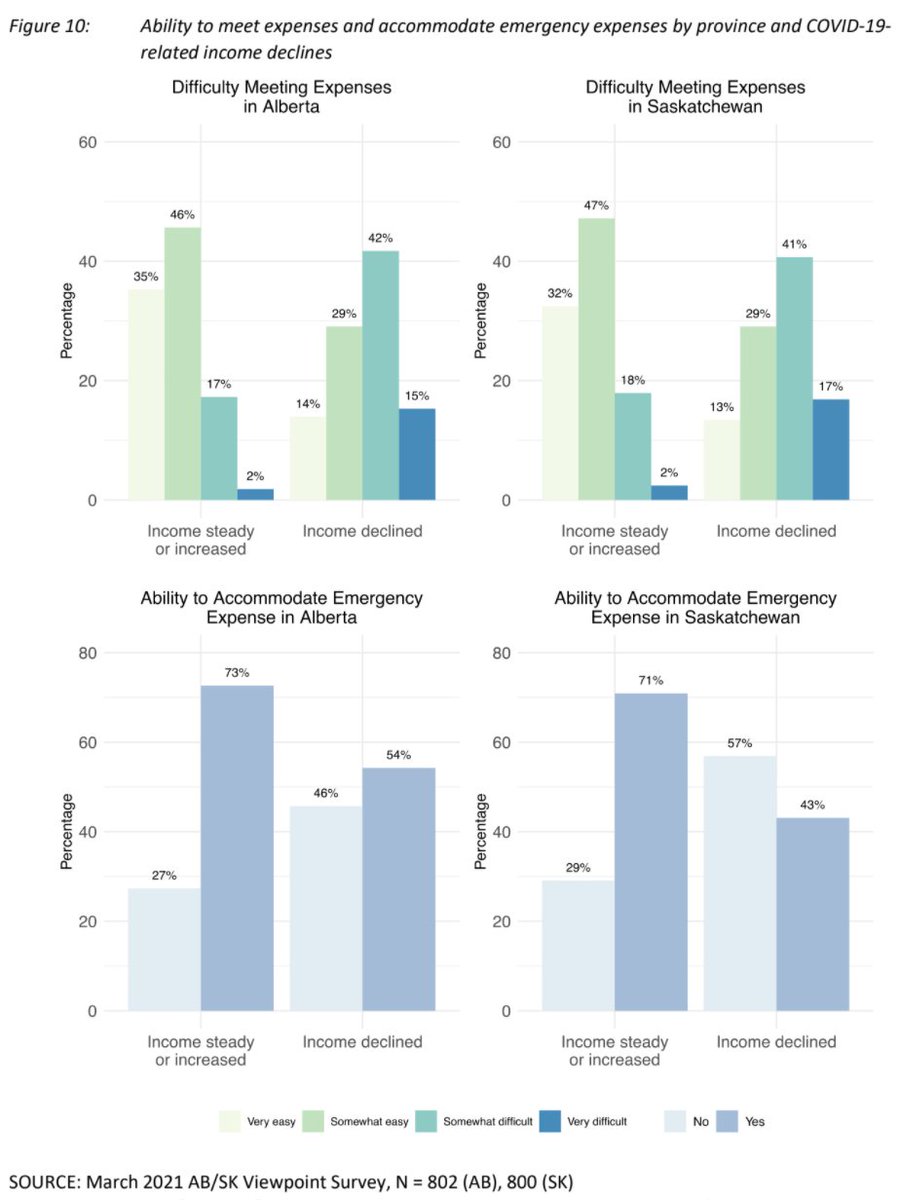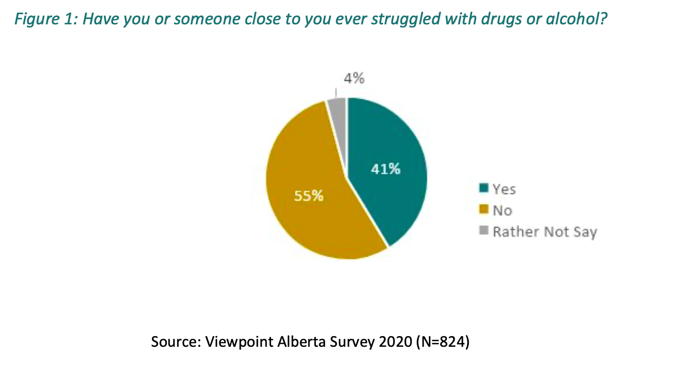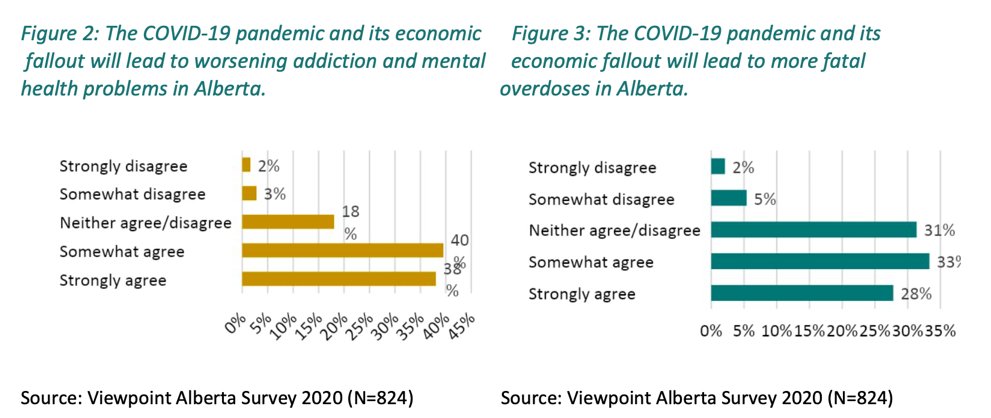
How do Albertans and Saskatchewanians feel about their economic situations during the pandemic’s third wave? @MarotoMichelle has our latest Viewpoint Research Brief. #ableg #skpoli drive.google.com/file/d/11PIlBP…
4 in 10 Albertans and 1 in 3 Saskatchewanians reported worsening employment situations since last year. Likewise, Albertans and Saskatchewanians reported income declines in March 2021. 

In SK & AB, racial minorities were more likely than white people to report worsening employment situations. Generation Z reported the highest employment effects––nearly half of SK Generation Z respondents and 6 in 10 AB Generation Z respondents reported worsening employment. 

Group differences in household income were more severe in AB where Gen X and people with some post-secondary education had the greatest income declines. In both AB & SK, racial minorities were more likely than white people to report an income decline. 

In AB, Liberal and smaller party supporters experienced negative employment and income effects. In SK, effects were felt most by Progressive Conservatives and undecided voters. Separatists were more likely to experience negative employment and income effects than non-separatists. 

In both provinces, about 9 in 10 respondents with a steady income viewed their financial situation as better or the same as the previous year, while 63-66% of those with declining incomes viewed their financial situations as worse. 

In both provinces, over one-third of respondents with a declining income believe that their financial situation will improve in the upcoming year, while nearly 7 in 10 respondents with a steady or increased income anticipate their financial situation will be the same next year. 

Saskatchewanians feel more positive than Albertans about their provinces’ economic futures in the next 10 years. For instance, 34% of Saskatchewanians reported feelings of pessimism compared to 49% of Albertans. 

Participants with income declines reported pessimism, anger, and fear about their province’s economic future more often than participants with steady incomes. Even after accounting for income changes, negative feelings were more common in AB. 

Despite this, economic insecurity is similar among the provinces. Albertans and Saskatchewanians found it difficult to meet expenses in recent months and many could not pay for a $1,000 emergency expense via savings. 

Economic insecurity depended on whether household income declined due to COVID-19. Respondents with declining incomes had a difficult time meeting expenses and accommodating an emergency expense, while those with steady/increased incomes could more readily cover these expenses. 

For more on this study, see our latest Research Brief. drive.google.com/file/d/11PIlBP…
Or you can visit our website for findings on a host of topics, from voting and partisanship to regionalism and discrimination. commongroundpolitics.ca/viewpoint-albe…
The Viewpoint Alberta-Saskatchewan project is co-led by @loleen_berdahl and @drjaredwesley. It is funded by @KIASAlberta and @usaskartsci.
• • •
Missing some Tweet in this thread? You can try to
force a refresh












